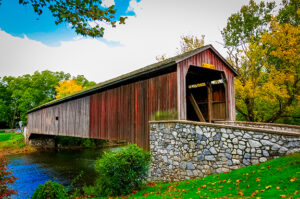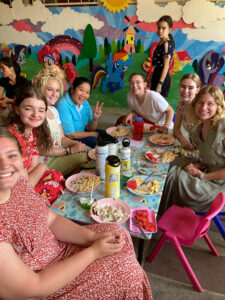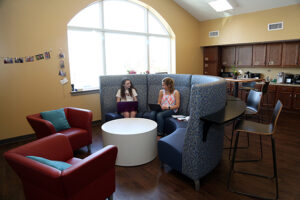Are you a high school student considering LBC for your college education? Or do you know a student who is thinking about attending LBC but has some questions about what the experience will be like? If so, we want to help! Check out some of our most frequently asked questions—straight from our Admissions team and current on-campus undergraduate students—regarding the admissions process, financial aid, our dorms, the LBC community and more. Take a look…
Q: What does it cost to attend LBC?
A: For the 2024-25 academic year, the cost to attend LBC as an on-campus undergraduate student included $29,990 for basic tuition (12-18 credits) and $12,220 for campus food and housing. There are also indirect costs like transportation, school supplies, personal costs, etc., to be considered. It’s important to note, however, that 99% of on-campus undergraduate students receive some sort of financial aid.
Q: What scholarships does LBC offer?
A: LBC offers many academic scholarships, as well as a Church Match. Some of our most-used scholarships include offerings for students whose parents work in full-time Christian ministry, students whose parents are LBC alumni, as well as students who graduated from a private Christian school.
Q: What is the community like?
A: At LBC, you’ll find a vibrant, Christian community that supports your educational journey. Through intentional mentoring relationships with faculty and staff, meaningful connections with peers and numerous opportunities for hands-on experience, students at LBC find more than just an education; they find their people, purpose and place.
 Q: What is there to do off campus?
Q: What is there to do off campus?
A: Nearby downtown Lancaster City offers a vibrant arts and food scene, with plenty of coffee and thrift shops, cafes and even the country’s oldest farmers’ market. Within driving distance is Hershey Park, Sight & Sound Theatres, as well as Lancaster’s Amish Country. Plus, quaint small towns are dotted throughout Lancaster County, such as Lititz, which was named America’s Coolest Small Town, as well as Ephrata, Elizabethtown, Manheim and more. There are also miles of amazing hiking locations, wildlife centers and other outdoor spaces.
Q: How are the dorms?
A: In late 2024, LBC was ranked No. 7 for Best College Dorms in Pennsylvania by Niche.com! We offer four on-campus residence halls, one of which is a suite-style dorm. Dorms are divided into sections led by Resident Assistants, who help build community and cultivate a Christ-centered living-learning environment.
Q: Can freshmen have cars on campus?
A: Yes! Freshmen are able to have cars on campus as long as they register for an LBC parking permit.
Q: Does the college have security?
A: LBC’s Public Safety Department offers round-the-clock services, including 24-hour patrols and walking escorts. Public Safety maintains a close working relationship with local law enforcement, first responders and emergency management officials to provide the best possible care for everyone on campus. Niche.com also named LBC in the top 15% nationally among the Safest College Campuses in America in its most recent rankings.
Q: How many students are on campus?
A: During the fall 2024 semester, there were 927 on-campus undergraduate students at LBC, including non-degree-seeking students and JumpStart (dual enrollment) students, studying a wide range of subjects, such as education, business, counseling, ministry, communication, music and more.
 Q: Where are most students from?
Q: Where are most students from?
A: The top seven states that current on-campus LBC students hail from are Pennsylvania, Maryland, New Jersey, New York, Virginia, Florida and Delaware.

The 2024 Thailand Journey Team
Q: Does LBC have study abroad programs?
A: LBC offers TraveLearn summer trips that combine on-site experiences with LBC classes, like International Business or Historical Perspectives. LBC is working to partner with several organizations to provide semester-long study abroad options.
Q: What denomination is LBC?
A: LBC is a non-denominational Bible college. We maintain an unqualified commitment to a historic, orthodox position on essential doctrines of the faith. Spiritual community and growth are integral to who we are, with regular chapel gatherings, prayer events, Bible studies and a commitment to biblically integrated academic curriculum woven into daily life.


